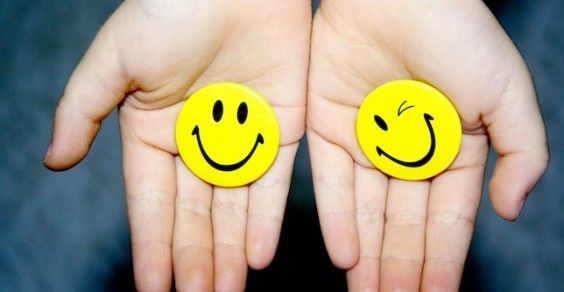Greatist News examines and explains the trends and studies making headlines in fitness, health, and happiness. Check out all the news here.
On April 2, 2012, leaders from 193 countries all over the world convened at the United Nations. They weren’t there to discuss the global economy or the state of international relations, but to talk about hugs and smiley faces. It was the first-ever conference on happiness and well-being, and the representatives there felt it was time to make happiness more of a global priority.
The result of these talks is a new holiday: the first annual International Day of Happiness. It’s a way to spark international conversation about what makes people happy and how to make them happier. The Day is based on the first World Happiness Report, which found that personal income isn’t always the best predictor of happiness. The leaders behind the initiative are Dr. Mark Williamson, director of the Action for Happiness movement, and Farhad Mohit, creator of the app Cheers.
What’s the Deal?
The focus of this year’s IDOH is on bringing happiness to others. “If we want a happier world it needs to really start with all of us caring more about and connecting more with the people around us,” Williamson told me over the phone.
Participants are encouraged to recognize the people in their lives that make them happy, otherwise known as “happy heroes,” by mentioning them on the Cheers app (which encourages users to take photos of the things that make them smile and share them with other users) or tweeting about them using the label “#happyheroes.” The idea is to highlight the little things people around us do to boost our mood. Heroes can be anyone from a coworker who brought cookies to the office meeting or a friend who let us vent our frustrations over the phone.
“My definition of happiness is very simple,” Williamson told me. “It’s feeling good about life and wanting it to go on that way.”
Why It Matters
While the holiday might seem trite or naive, Williamson and Mohit hope the IDOH will inspire a big shift in the way we think about societal progress and individual well-being. Right now, they said, Gross Domestic Product (GDP) is the standard measure of a country’s average well-being. But material goods and economic development don’t always translate to happiness, Mohit said. Years ago, around the Industrial Revolution, more wealth meant greater happiness; but that model might no longer apply. In the United States, for example, living standards have continued to rise without a concurrent increase in national happiness levels.
In fact, Mohit added, in today’s society, accumulating more goods often makes us feel less happy. Modern media have a “slightly disempowering effect,” he said, and advertisements that encourage people to buy one product or another are “always trying to tell you you’re not good enough.”
In reality, Mohit stresses, “the purpose of life isn’t to keep getting more and more stuff.”
Instead of looking for satisfaction in the purchase of a new car or television, we should focus on developing our personal relationships. What really matters, Williamson said, are “little things that don’t cost any money but are about our kind of attitude and the way we treat others.”
Perhaps even more importantly, the search for happiness should begin from within. “You are the creator of your happiness,” Mohit said. “That’s another thing that gets lost when you look at the messages outside of yourself and try to figure out how to become happy based on what they’re saying. That’s a losing battle.”
Mohit’s app Cheers reflects the importance of personal autonomy, and the idea that we create our own life satisfaction. Users take a photo of a person, place, or idea that makes them happy and share it with other users, who “cheer” the item if it makes them happy, too.
Those who want to participate in the IDOH can start by signing the pledge to try to create more happiness in the world around them. Others can join events taking place all over the world and publicize their efforts on social media.
Ultimately, the simple acts that take place on the IDOH are meant to be part of a larger discussion about finding substantive meaning in life. “The experience of happiness and what makes us happy is very unique to each of us,” Williamson said, “but that idea of wanting to feel good about life is absolutely universal to all humans.”
Do you think the International Day of Happiness will really change global attitudes about happiness and well-being? Let us know in the comments below or tweet the author at @ShanaDLebowitz.

